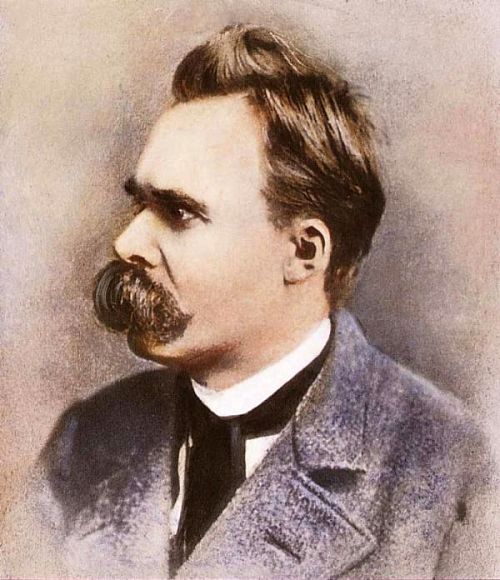Unlike Nietzsche and other nineteenth-century critics of Christianity, today’s atheists are scum. A single example will illustrate my point.
Atheist Richard Dawkins, who has appeared in talk shows arguing that homophobia is bigotry, claims to be an evolutionary biologist. But Dawkins has never dared to take seriously the most elemental biological law of evolution regarding the future of his people: to grow and multiply—not even when whites are flagrantly violating that law and heading toward extinction.
The following is a brief exchange between Dawkins and a Palestinian Muslim. Keep in mind my recent post on Pride & Prejudice and Will Durant’s words, that Nature “sees that a nation with low birth rate shall be periodically chastened by some more virile and fertile group”:
Muslim: Fix your women.
Dawkins: Fix your women! That’s not my business; that’s my women’s business.
Muslim: No, no! It is your business. When you take your women and dress them like whores in…
Dawkins: I don’t dress women! They dress themselves!
Muslim: I know but you allow it as a norm to let women on the street dressed like this. What’s going on with your society? What’s wrong with the…?
See the video of this exchange here. Dawkins could not tolerate more cognitive dissonance and, as you can see in the video, he simply faded out the audio of what the Muslim was trying to tell him.
Unless a white revolution reclaims Europe, the Muslims will teach the feminized western males of Eurabia how to grow a pair again, especially regarding our treatment of women. How sad that the Muslims have to teach us what we already knew when, unlike the atheists of today, we took the laws of biology very seriously.
This is Nietzsche’s critique of licentiousness under the guise of liberty taken from Twilight of the Idols, chapter “Skirmishes of an Untimely Man,” section 41:
Freedom which I do not mean.* In times like these, abandonment to one’s instincts is one calamity more… Today the individual still has to be made possible by being pruned: possible here means whole. The reverse is what happens: the claim for independence, for free development, for laisser aller is pressed most hotly by the very people for whom no reins would be too strict. This is true in politics, this is true in art. But that is a symptom of décadence: our modern conception of “freedom” is one more proof of the degeneration of the instincts.
(*) Adding a “not” Nietzsche is quoting here a popular German verse from a Max von Schenkendorf poem titled Liberty.

